An Interview with: Janine Tejeda, President and Founder of ScholasTIC Tourette’s Supporters, Inc.
“Learning to forgive myself, respect myself, and love myself has been my brilliant creative act. I wish this for all people.” – Larry Barber, An Unlikely Strength
An Unlikely Strength can be found in the suggested reading section of this blog because there are vast similarities between the symptoms of Traumatic Brain Injury (TBI) and Tourette Syndrome (TS). In his inspirational book, Mr. Barber captures the stories of successful “Touretters” who have overcome their neurological struggles. This became a source of hope for me.
TS is a neurological disorder characterized by repetitive, stereotyped, involuntary movements, and vocalizations called tics. Although I don’t suffer from tics, In October of 2014, following a grand mal seizure an Oligodendroglioma brain tumor was discovered in my left frontal lobe. This type of tumor is derived from Oligodendrocytes, the cells that produce a substance (myelin) that insulates nerve fibers. These cells are the “support cells” of the central nervous system (CNS) and they help neurons and nerve cells do their jobs.
Following a craniotomy, in December of 2014 which successfully removed all “visible tumor,” I struggled with TBI. That was when I realized the similarities between TBI and TS. As I regained the ability to speak, my speech was halted and I had little control over the right side of my body (i.e. as I reacquired the ability to move my right side, my right hand/arm vacillated from extreme stiffness to sporadic uncontrollable movements). I was (and still am) incredibly sensitive to different types of lights and sounds, and I easily became (and still become) overstimulated.
According to The National Institute of Neurological Disorders and Stroke; “Although the cause of TS is unknown, current research points to abnormalities in certain brain regions (including the basal ganglia, frontal lobes, and cortex), the circuits that interconnect these regions, and the neurotransmitters (dopamine, serotonin, and norepinephrine) responsible for communication among nerve cells.”
Traumatic Brain Injury (TBI) and Tourette Syndrome (TS):
In addition to the overlap between TBI and TS, there also happens to be an overlap in the nationally declared awareness months for brain tumor/cancer (May 1st – May 31st) and TS (May 15th – June 15th). Since there are still a couple of days left in Tourette Syndrome Awareness Month, I decided to interview my dear friend Janine Tejeda about her experience with TS.
Janine obtained her B.S. in Microbiology from Cal Poly Pomona and went on to get a Doctorate in Pharmacy at USC. She has worked as a hospital pharmacist in California for the past 26 years and is currently with Children’s Hospital Los Angeles. She is extremely active in the Tourette community and has served as the Interim Executive Director for the Southern California Chapter of the Tourette Association of America (TAA). In 2015, Janine created ScholasTIC Tourette’s Supporters, Inc. (a non-profit 501(c)3 which became the sole foundation on the west coast of the U.S. to award college scholarships to teenagers based on a Tourette Syndrome diagnosis).
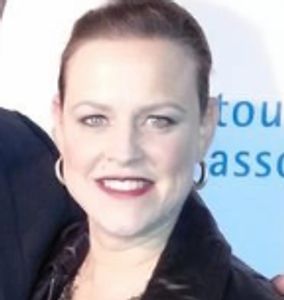
Janine first learned about TS when her son, Jonah, was diagnosed with the condition at six-years-old. By the time he was in fourth grade, Janine and her husband had spent tens of thousands of dollars on schooling, behavioral management, second opinions, biofeedback, and tutoring. Eventually, they had to tap into the college fund they established for Jonah when he was born to help cover everything.
Janine founded ScholasTIC Tourette’s Supporters, Inc. knowing there were other parents with the same struggles and she wanted to do something to help. She knew these students needed acknowledgment for working hard, overcoming personal setbacks, rising above educational challenges, and bullying.
Just like many people can’t tell by looking at me that I battle daily with the invisible symptoms of TBI — you would never know by looking at Jonah’s photo that he has all of the underlying issues of TS to contend with.
Jonah is one of my son’s best friends. We love him (and his family) which is another reason for this post.
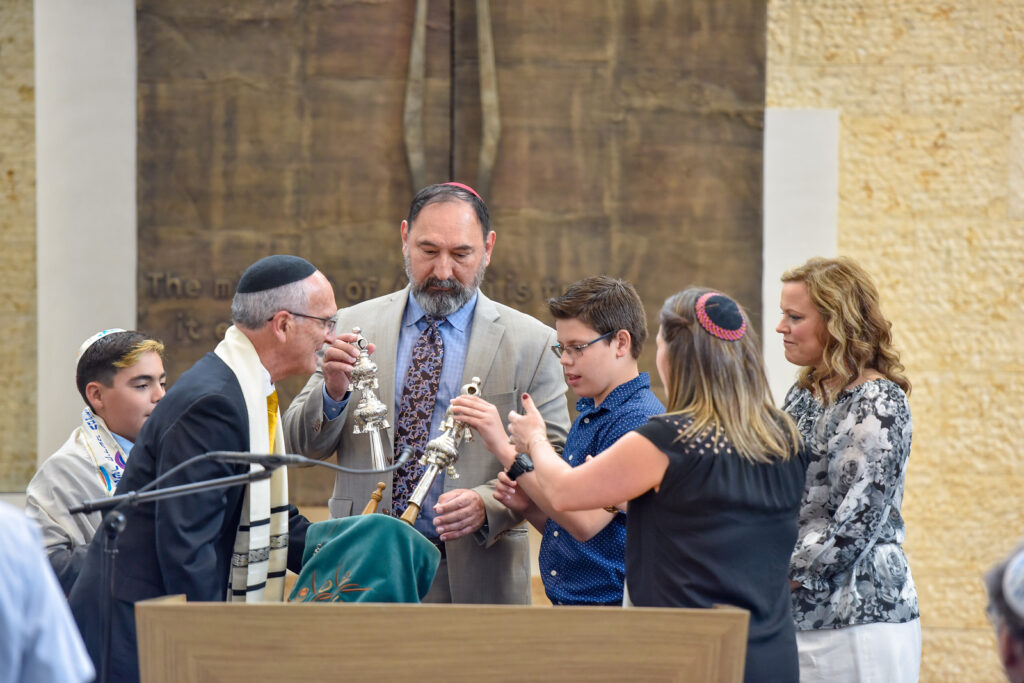
Jonah and his parents participating in our son's Bar Mitzvah.Wendy: Hi Janine. Thanks so much for joining me today. I recall after my craniotomy, all of my senses were extremely heightened. I was easily triggered by various lights and sounds. It was as if every sound echoed in my head and every light penetrated my body. I remember thinking ‘oh this must be how Jonah feels when he gets overstimulated.’
I briefly described Tourette Syndrome above but can you please talk about the symptoms you first saw in Jonah?
Janine: When Jonah was five-years-old he started having a lot of eye twitching and shoulder shrugging. We thought he was having trouble with his eyes. We went to an ophthalmologist who did a lot of testing but his sight was good. There were a lot of behavioral symptoms during this time of his life too. He always pretended to be a dog, so he barked a lot and he had symptoms of ADHD. Our doctor suggested we see a neurologist and a developmental pediatrician and this is where we heard ‘Tourette Syndrome’ for the first time.
Wendy: How is Jonah doing now?
Janine: Jonah is now 15, so in these 10 years we have seen a lot of symptoms and changes to his disorder. He just finished his freshman year of high school at a private school and is on the honor roll.
“He just finished his freshman year of high school at a private school and is on the honor roll.”
His TS is still present and manifests as random words, noises, and a persistent jumping tic. His ADHD (a comorbid diagnosis) is controlled with medications and he takes additional medications to control the neurological symptoms of TS. You can see by his current symptoms that despite treatment, he is still challenged by this disorder.
Wendy: What are some of the ways in which you see TBI and TS as similar?
Janine: These are the similar symptoms from the above images: difficulty concentrating and processing information, especially if things are too noisy or disorganized. Working memory problems, impulsivity, emotional lability, irritability, and fatigue. In addition to these symptoms, he also has sensory processing difficulties like dealing with food textures, cold food items, tight clothing, and hot climate temperatures. As you mentioned, the area of the brain affected in TS is the frontal lobe (and the temporal lobe). It is also a neuro-chemical disorder where dopamine, serotonin, and norepinephrine are affected.
Wendy: You recently became accredited as an advocate by the Council of Parent Attorneys and Advocates (COPAA). Can you please tell us about that and why it was necessary?
Janine: For most of Jonah’s educational life, since kindergarten, the educational system saw an intelligent kid who had behavioral problems. This was a child who couldn’t control himself, couldn’t sit still, was noisy, seemed to act out for attention, and didn’t pay attention to anything the teachers presented. Yet, he got good grades. Many teachers saw him as a troubled child, maybe an autistic child, and wanted to put him on a behavioral improvement plan. The idea that something neurological could be impacting him was not considered. Every accommodation that was put in place to help him keep self-control, follow directions, and be socially appropriate had to be fought for. After connecting with the local chapter of the TAA, it became clear that his symptoms and behaviors were typical for children challenged by TS. Many doctors, psychiatrists, therapists did not know enough about this to guide the school or even us as parents. We had to seek out specialists to get answers and once we found the correct neurologist and Tourette clinic to help him, things got easier for us to understand; but it was still a challenge for the educational system. It really has never gotten better. We always have to educate everyone about his disorder wherever we go. So to improve his quality of life and others with TS, I found it necessary to learn about educational rights for children with disabilities. TS is a real bonafide disability covered by the IDEA act and this gives him protection and rights under the law. Learning this has empowered me to keep pressing forward with demanding he is included in every educational opportunity. I became a self-learned expert in TS and now I have the training to educate and advocate for others like him.
“The idea that something neurological could be impacting him was not considered.”
Wendy: How many scholarships have ScholasTIC Tourette’s Supporters, Inc. awarded? And, can you please tell us about a few of the students?
Janine: After we went through so much with Jonah, I started thinking about all the other families we had met in similar situations. I thought, who is helping them figure this out? I got really involved with my local chapter of the TAA. I volunteered for everything. Yet, it wasn’t enough. I had this desire to do more in honor of those whose school years were so difficult. My family backed my idea of starting a scholarship. Five years ago I started looking into the requirements of non-profit organizations. And Wendy, you inspired me with your non-profit work. I saw the benefit of giving my time and money to this group of under-represented families and children who just wanted to feel normal. It started with a website and then the application for a 501(c)3 designation. Over the course of a year, and the support of friends and family, I plugged away at forming a charity. The sole purpose was to give these kids an honorarium as they graduated from high school. Some of these students would never have a chance at a mainstream scholarship to fund a four-year college dream. I wanted to create a scholarship that rewarded their efforts and their overall ability to persevere through adversity despite these massive challenges to learning, organization, focus, attention, emotional control, bullying, ostracizing, and exclusion. It wasn’t about GPA, it was about passion, perseverance, and overcoming adversity. To date, we have raised over $50,000 and awarded 29 scholarships to students with Tourette syndrome. Awards have ranged from $500-$2,000. We have given scholarships to students going to vocational schools, four-year colleges, and universities abroad. It is my intense pride to turn the adversity we endured into something positive that we can see helping others with the same challenges.
“I wanted to create a scholarship that rewarded their efforts and their overall ability to persevere through adversity despite these massive challenges to learning, organization, focus, attention, emotional control, bullying, ostracizing, and exclusion.”
Our vision is to give additional scholarships, increase the award amounts, and continue to help youth and young adults with TS succeed. The students are all very talented. Many have musical talents or other artistic abilities. Several of them have been accepted into the Berklee College of Music in New York. Other awardees aspire to do great things like becoming filmmakers, pilots, and medical students. When supported, there is no limit for them.
Wendy: How does the foundation raise funds?
Janine: The majority of our funds have been generated by the Tourette community itself. We have many families touched by TS who feel our same passion and have donated to help these students. Mr. and Mrs. Paul Devore, for example, are champions of the Tourette cause. They offer us a matching challenge grant every year. To have their support is extra special. Additionally, we are fortunate to have other people with TS see the value of our work and set up birthday fundraisers for our scholarship on Facebook. As they engage their own friends and family to acknowledge their struggles, they turn the birthday fundraisers into a dedication in their honor. We have had supporters nominate us for a Disney grant and have had charitable foundation annuity distributions come to us. Also, Brad Cohen from the book and movie titled Front of the Class has granted us funds from his own Tourette Foundation to support our cause. We are very appreciative of the following as well for their overwhelming support: The Hendon Family, Devin Denicola (#teamupforTS), and Brian Burns (#TiccingAwaytheMiles).
“It is my intense pride to turn the adversity we endured into something positive that we can see helping others with the same challenges.”
Wendy: Where can students apply for the scholarship and when is the deadline?
Janine: Our website has all of the information about the requirements. We have a tab for applicants that takes them directly to an online form. www.scholasTICsupport.org is the first place to start. Applications open in January every year and close in May or June. This year we have a closing date of June 15, 2020.
Wendy: What message do you most want to get out about TS?
Janine: TS is not a mental illness and is not a behavioral problem. It is a neurological condition; it is a neuro-developmental disorder; it is a movement disorder. It is a spectrum disorder that has similar features but can look different in each person.
“TS is not a mental illness and is not a behavioral problem. It is a neurological condition; it is a neuro-developmental disorder; it is a movement disorder.”
Cognitive ability is intact; our students can learn and they are very talented. They dislike the effects of this condition more than anyone else. They are aware that they are different and are perceived as problem students. With education, tolerance, inclusion, and support, they can overcome, thrive, and excel at whatever they want but they need our help and voice.
“With education, tolerance, inclusion, and support, they can overcome, thrive, and excel at whatever they want but they need our help and voice.”
Wendy: Is there anything else you would like to add?
Janine: Although this has been a tough journey, my son is the most precious person to me. In his honor, I have become a changed person. I empathize with those struggling to overcome challenges, I champion families that need help and I feel most successful when I’m educating about TS, advocating for families, and raising awareness.
When donors give to our non-profit, they can be assured that 100 percent of their contributions go to the students. All organizational costs are provided by board members and we have the platinum seal from Guidestar which shows our fiscal commitment to transparency in fundraising.
You can usually find me during the school year wearing teal, the color of support for TS, getting ready to speak to a class of kids about Tourette’s, or educating teachers about how to best support our students in the classroom. I have so much passion for this community, it makes my heart soar to see them succeed despite challenges.
Thank you for this opportunity to share about this misunderstood medical condition.
“I have so much passion for this community, it makes my heart soar to see them succeed despite challenges.”
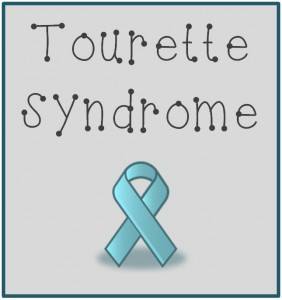


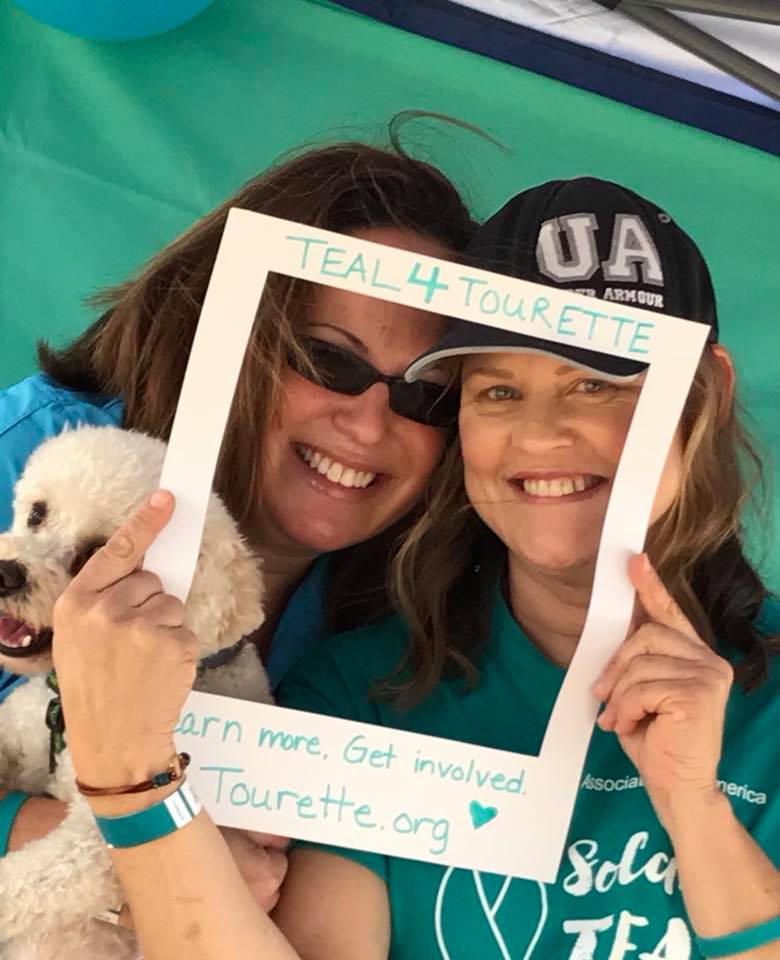
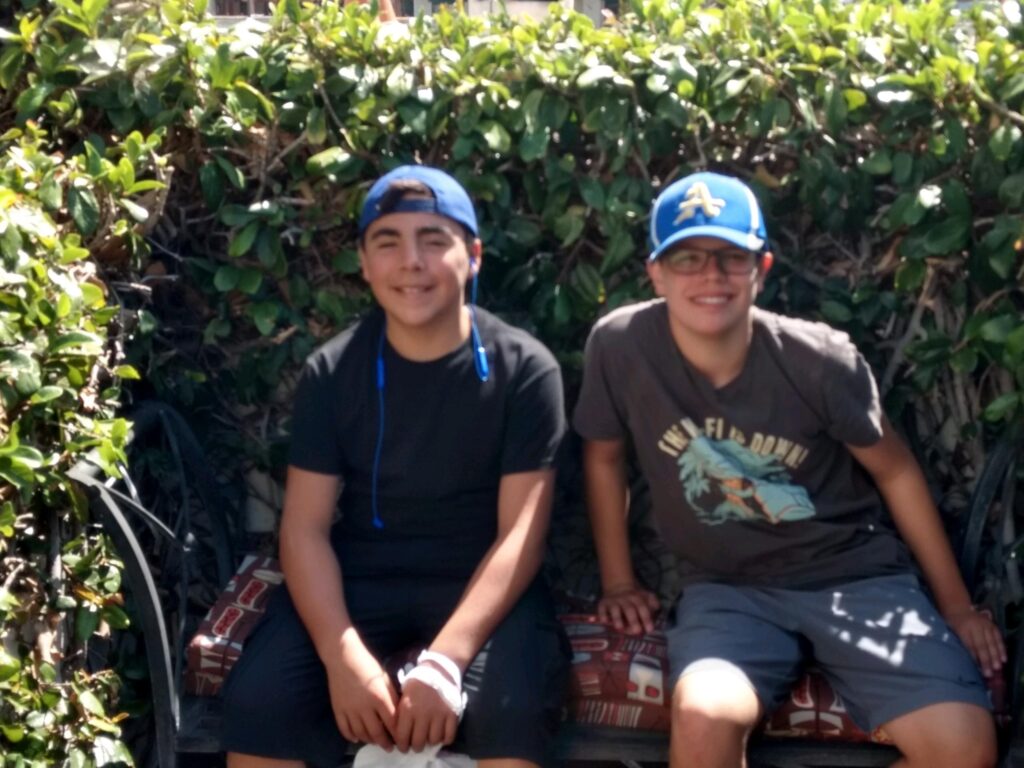
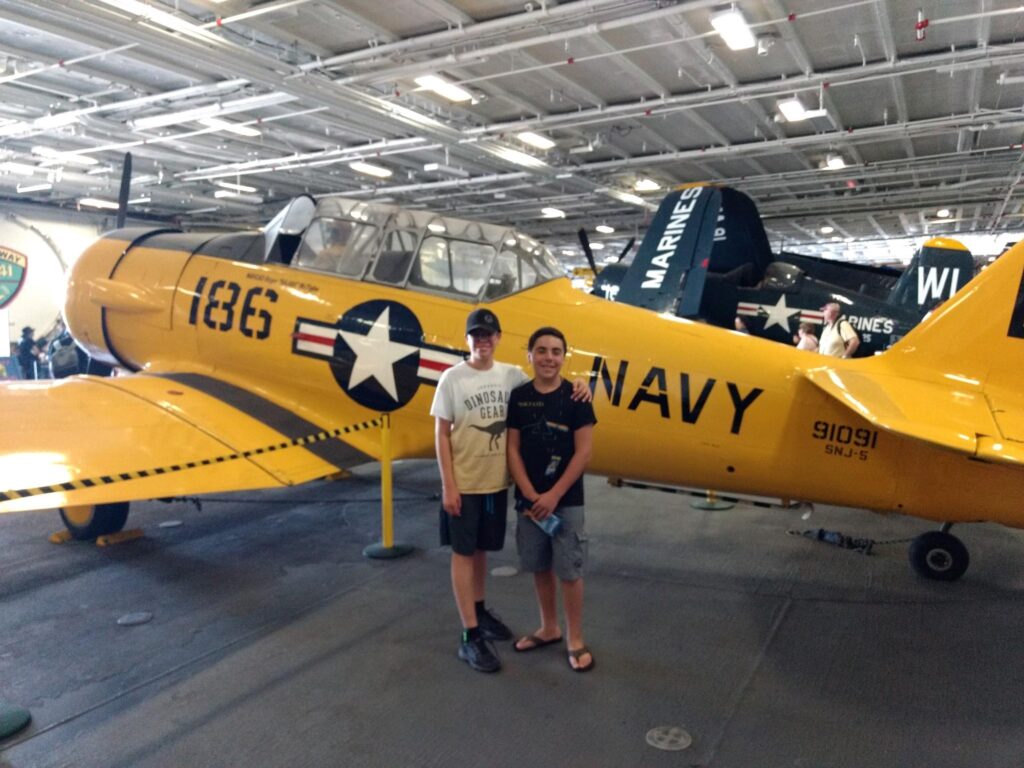
 Hello. My name is Wendy and I’m a recovering workaholic. I'm also a brain tumor/cancer survivor.
The purpose of this blog is to share my experiences, memories, resources, and self-discoveries as I continue to transform from a workaholic into a more balanced person. I have read several books and stories about others who have had similar experiences
Hello. My name is Wendy and I’m a recovering workaholic. I'm also a brain tumor/cancer survivor.
The purpose of this blog is to share my experiences, memories, resources, and self-discoveries as I continue to transform from a workaholic into a more balanced person. I have read several books and stories about others who have had similar experiences 